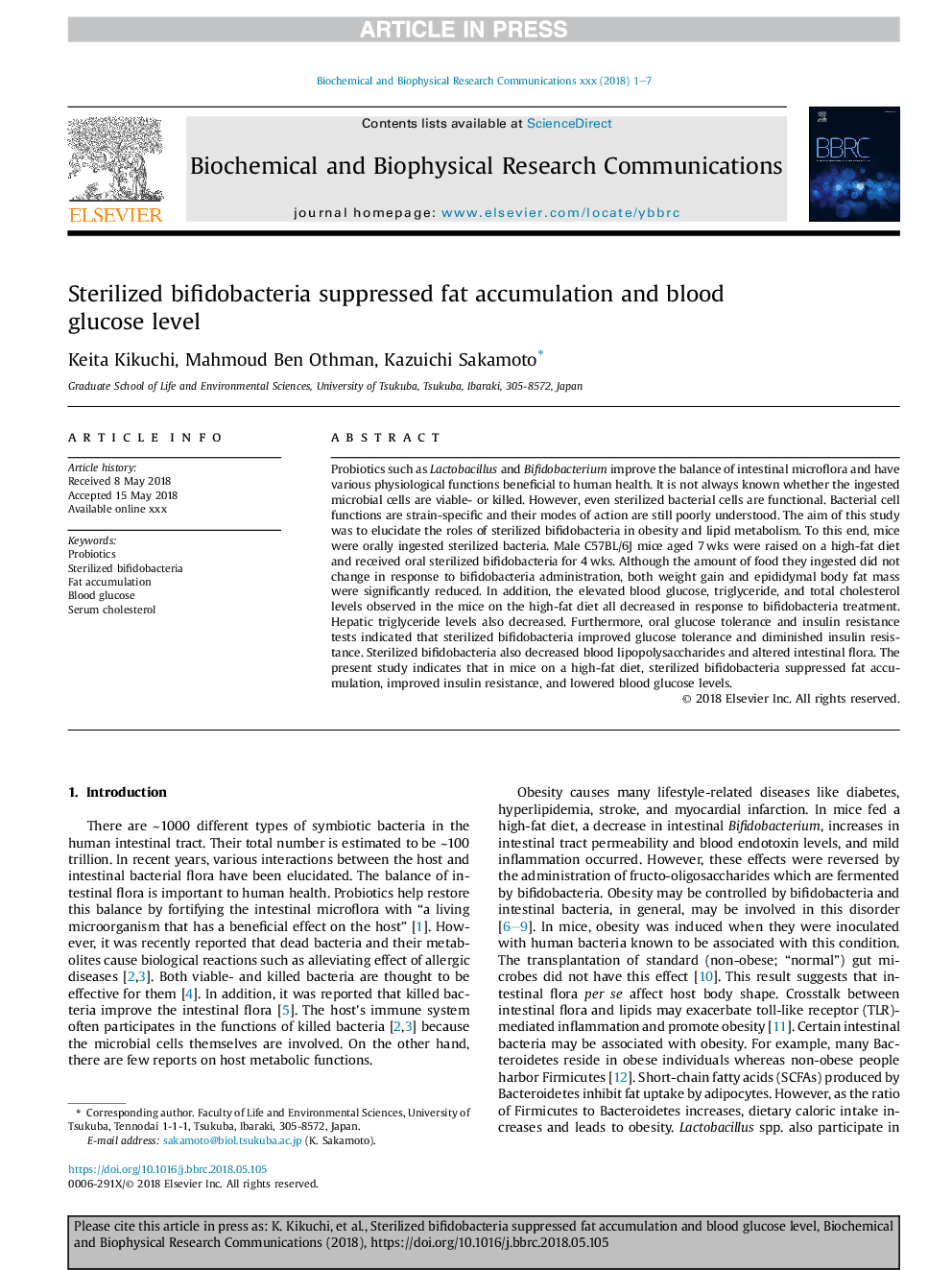| Article ID | Journal | Published Year | Pages | File Type |
|---|---|---|---|---|
| 8292547 | Biochemical and Biophysical Research Communications | 2018 | 7 Pages |
Abstract
Probiotics such as Lactobacillus and Bifidobacterium improve the balance of intestinal microflora and have various physiological functions beneficial to human health. It is not always known whether the ingested microbial cells are viable- or killed. However, even sterilized bacterial cells are functional. Bacterial cell functions are strain-specific and their modes of action are still poorly understood. The aim of this study was to elucidate the roles of sterilized bifidobacteria in obesity and lipid metabolism. To this end, mice were orally ingested sterilized bacteria. Male C57BL/6J mice aged 7â¯wks were raised on a high-fat diet and received oral sterilized bifidobacteria for 4â¯wks. Although the amount of food they ingested did not change in response to bifidobacteria administration, both weight gain and epididymal body fat mass were significantly reduced. In addition, the elevated blood glucose, triglyceride, and total cholesterol levels observed in the mice on the high-fat diet all decreased in response to bifidobacteria treatment. Hepatic triglyceride levels also decreased. Furthermore, oral glucose tolerance and insulin resistance tests indicated that sterilized bifidobacteria improved glucose tolerance and diminished insulin resistance. Sterilized bifidobacteria also decreased blood lipopolysaccharides and altered intestinal flora. The present study indicates that in mice on a high-fat diet, sterilized bifidobacteria suppressed fat accumulation, improved insulin resistance, and lowered blood glucose levels.
Related Topics
Life Sciences
Biochemistry, Genetics and Molecular Biology
Biochemistry
Authors
Keita Kikuchi, Mahmoud Ben Othman, Kazuichi Sakamoto,
